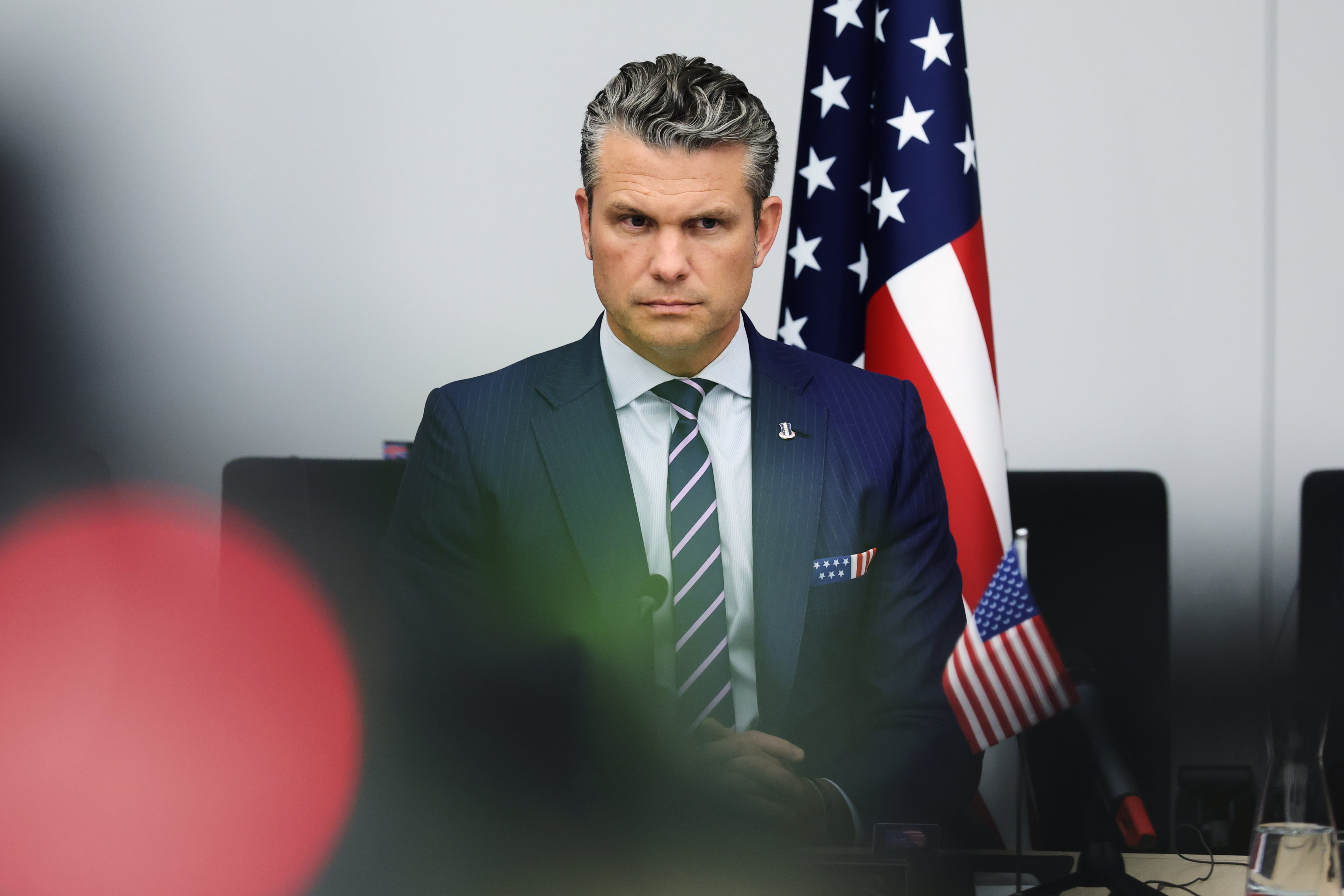WASHINGTON - Two U.S lawmakers are restarting a a bipartisan group to signal the Senate’s commitment to NATO and deterring Russian aggression.
The revival of the Senate North Atlantic Treaty Organization Observer Group, by Sen. Jeanne Shaheen, D-N.H., and Sen. Thom Tillis, R-N.C., comes after President Donald Trump ruffled NATO allies early in his presidency by criticizing the alliance.
Yet both senators downplayed the timing of their announcement, and whether it was a reaction to the president.
“I wish I could draw that connection for you,” Shaheen told reporters at the roll out event on Wednesday. “Really it’s the result of the threats from Russia. [With America’s European Deterrence Initiative], this is another opportunity for us in the Senate to show our support for the efforts to deter Russia and to make sure there’s support in the Senate for NATO.”
It also came a day after U.S. Cyber Command’s chief said he had not received orders from the White House to respond to Moscow’s meddling in U.S. elections and amid a growing call for the president to denounce Russia.
Two weeks earlier at the Munich Security Conference, no U.S. cabinet-level officials addressed the conference, and the idea of a European-led defense initiative was a hot topic.
Shaheen said that when she was at Munich, she heard less worrying from allies about America’s commitment to NATO than she had a year earlier and more about how to advanced the changed relationship.
Those changes appeared to be reflected in the new mission of the group, which was first established in 1997 amid an expansion of the alliance and disbanded in 2007, when no new countries were joining.
Since then, Russia has occupied territory in Georgia, its annexation of Crimea — declared illegal by the United Nations — and it has interfered in European democracies, as well as U.S. elections.
Now, lawmakers said the group will cover defense spending commitments of NATO members, the process of upgrading military capabilities, the alliance’s counter-terrorism efforts and the ability of member states to address non-conventional warfare.
Shaheen said lawmakers began work to relaunch the group last fall, when allies were more jittery about the U.S. commitment to NATO. It was also spurred by delays in the Senate’s approval of Montenegro’s accession to NATO — which ultimately passed with all but two votes.
The group’s revival was backed by Senate Majority Leader Mitch McConnell, R-Ky., and Senate Minority Leader Chuck Schumer. Its members will include the chairmen and top Democrats on the armed services, intelligence, foreign relations and appropriations committees.
Trump, early in his presidency, openly questioned why the U.S. should be spending on the alliance when other members were not willing to spend NATO’s benchmark 2 percent of GDP on defense.
The rhetoric has since softened, and many NATO nations have made public their efforts to meet that threshold. It’s unclear how much that is due to pressure from Trump or a reaction to Russian aggression, given the long timetables most European nations have for increased defense spending.
At a Feb. 15 NATO ministerial meeting in Brussels, U.S. Defense Secretary Jim Mattis praised alliance members for increasing their spending. He noted that in 2014, only three nations met that 2 percent threshold; by the end of this year, eight nations will be doing so, and 15 other nations have outlined plans to be there by 2024.
As part of that spending, NATO plans to open two new commands, one focused on moving materiel around Europe and one focused on increasing Atlantic security.
Supreme Allied Commander in Europe, U.S. Army Gen. Curtis Scaparrotti and the assistant secretary of state for Europe, Wess Mitchell, both spoke at the launch event, which Tillis touted as a sign of administration support.
“Under [Russian President] Vladimir Putin’s leadership, Russia has demonstrated its ability to not just threaten and invade NATO, but spreads chaos, disinformation and disruptive influence in the very heart of Western societies,” Mitchell said. “The Senate NATO Observer Group is an important tool for engaging and strengthening NATO at this critical time.”
Aaron Mehta, in Washington, D.C., contributed to this report.
Joe Gould was the senior Pentagon reporter for Defense News, covering the intersection of national security policy, politics and the defense industry. He had previously served as Congress reporter.





